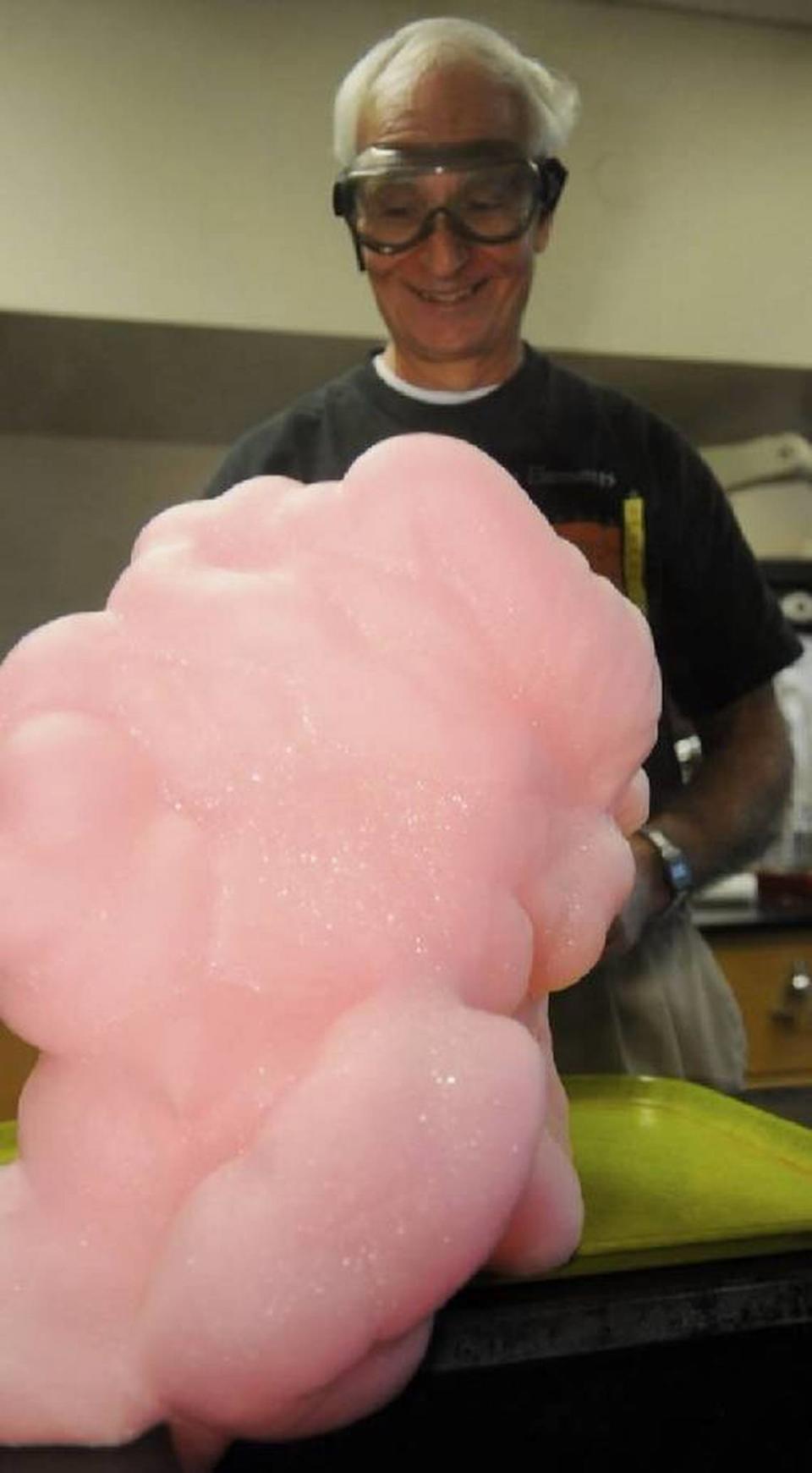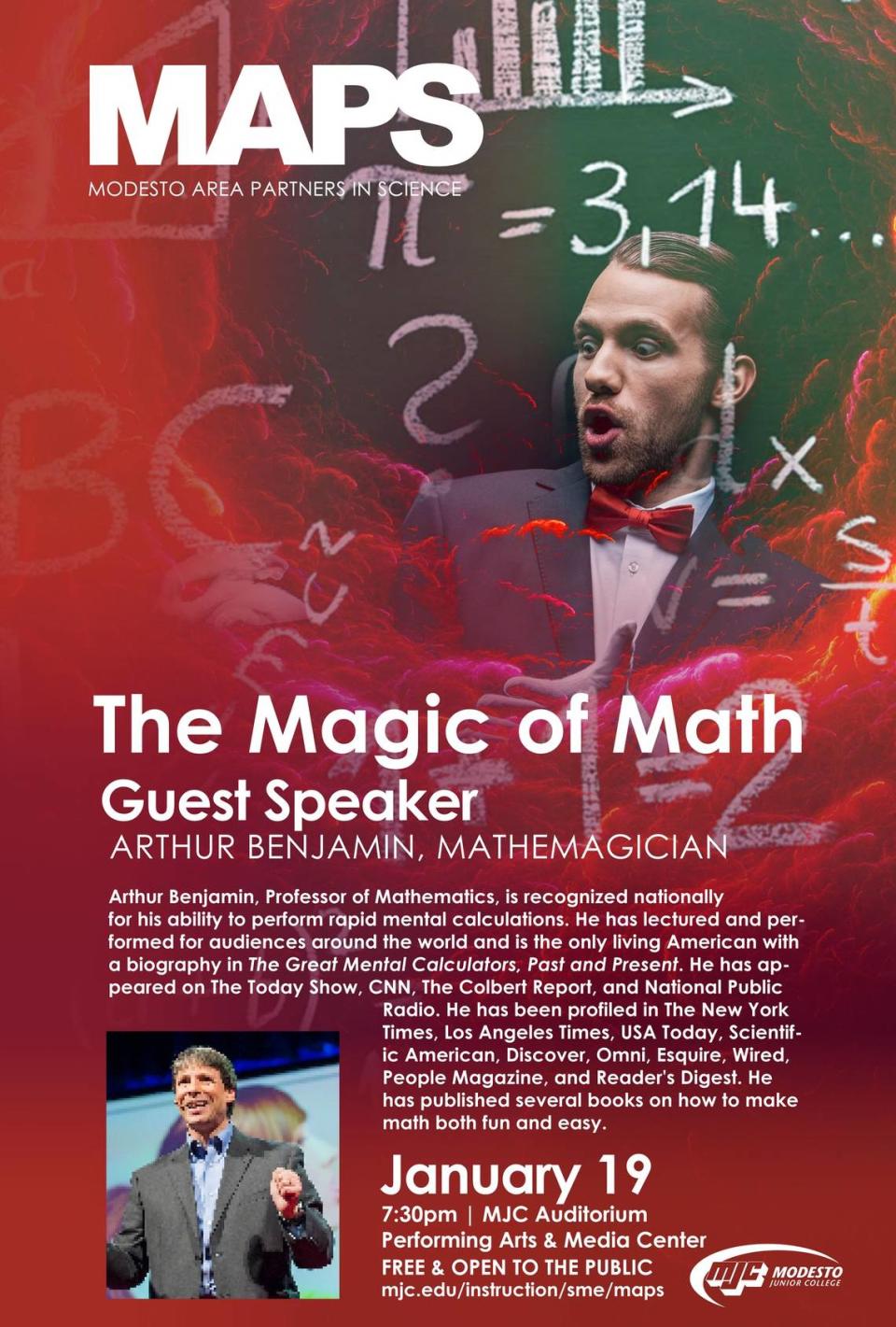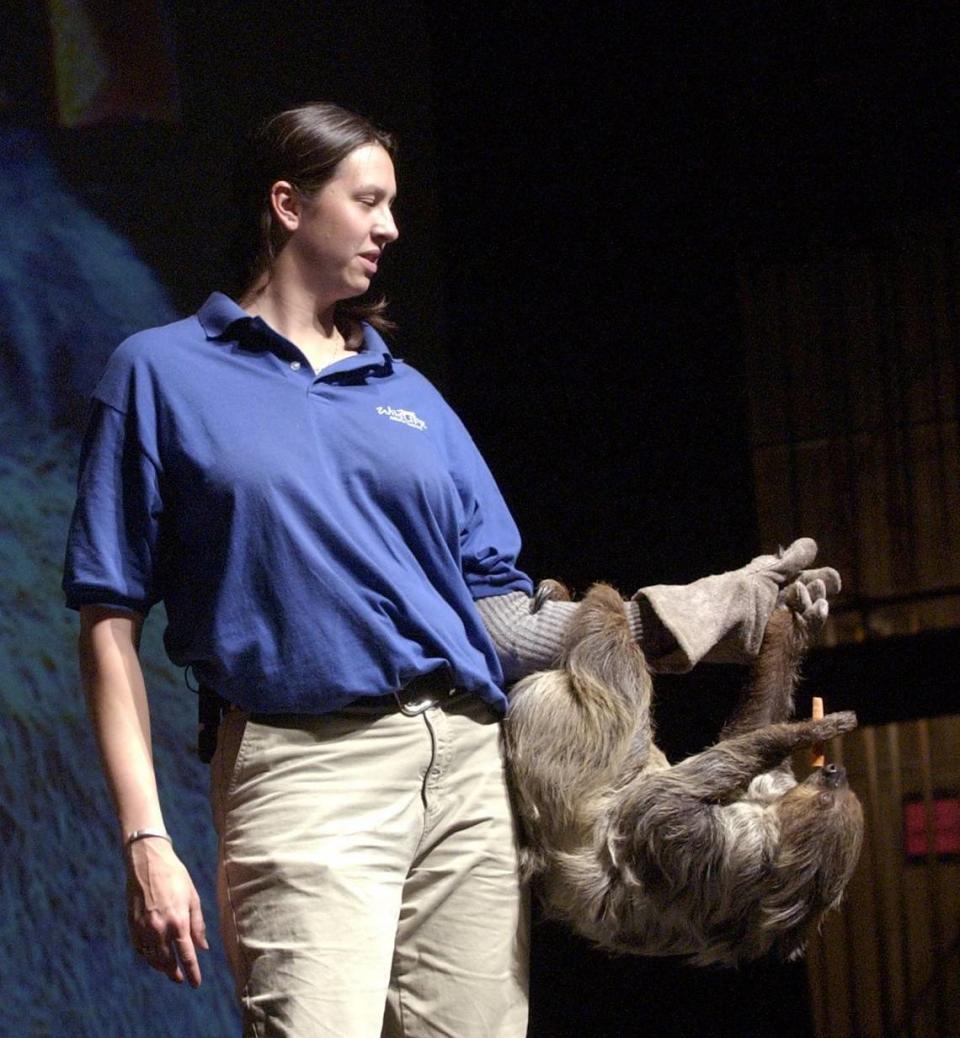Your Stanislaus student struggling with, or thrilled by, science? MAPS is there either way
For over 32 years, the Modesto Area Partners in Science have worked to encourage students in the county to understand and have fun with various topics of science.
The organization, also known as MAPS, offers free presentations, inviting guests in the fields of science, math and technology to help give students better understandings of the subjects by adding a factor of entertainment.
Its next program is coming up Friday, when Arthur Benjamin, a professor of math at Harvey Mudd College, will present, for all ages, “Mathemagics” in the Modesto Junior College East Campus auditorium.
“We try to show [students] how important science is in their lives and that anybody can do it,” said Steven Murov, MAPS adviser and retired MJC chemistry professor. “Science should be fascinating and involves exploration, which is something they need.”
Prior to the COVID-19 pandemic, some presentations had up to 800 students attending them on a Friday night. Through topics including climate change, genetics and artificial intelligence, Murov said he hopes to educate and inspire students and help them formulate plans for their futures. He’s done his fair share of fun science presentations himself, often as his alter ego, Dr. Al Chemist.

“If you just give people dry science, they go home and forget about what they’ve seen,” he said. “STEM needs to be pushed. I mean if we look at our society, we are surrounded by science and yet most people don’t really understand it.”
MAPS was created through a partnership between Modesto Junior College and Modesto City Schools using a $100,000 Eisenhower grant. Now, the organization works closely with various school districts and the Stanislaus County of Education.
It recently received a $50,000 grant from the city of Modesto to continue to bring experts to present at no charge to the public.
“Not everybody has the same financial resources available to them and we don’t want to exclude anybody in the community from being able to have access to important scientific issues,” said Catherine Tripp, a professor of biological science at Modesto Junior College and the MAPS coordinator.
“We strive very hard to not make a program where it requires some sort of financial money to get it,” she said. “We want it to be free because we want to educate everybody.”

While attending MJC, Emma Stein participated in the free presentations by MAPS. Stein said she believes learning STEM subjects helps students outside of academics by exposing them to critical thinking skills.
“MAPS really helps show students how real researchers are identifying and solving problems, and demonstrates that there’s still lots to learn about science,” she said.
Living in Modesto, Stein said, it can be rather difficult to find in-person opportunities to learn about higher-level science, but MAPS helps to fill that void. She believes the presentations promote a sense of community.
“Just getting the opportunity to interact with these professionals — without having to travel outside the Central Valley — is truly valuable, particularly for students who aren’t able to drive themselves,” she said. “That really made a difference for me as a student.”

Here’s what’s coming up from MAPS
▪ Friday, Jan. 19. Arthur Benjamin, a number wizard and professor of math at Harvey Mudd College, presents “Mathemagics,” using “daring displays of algorithmic trickery” to mesmerize audiences with “mathematical mystery and beauty.”
▪ Feb. 23. Benjamin Cottingham of PACE (Policy Analysis for California Education) presents “The Impact of AI (Artificial Intelligence) on Education.” His work focuses on the development of organizational conditions that support the continual improvement of student outcomes across California’s education system.
▪ March 22. Priya Shukla from UC Davis presents “From Cradle to Plate: An Oyster’s Journey.” From artwork to adaptation, fossils to fantasy, and experiments to expeditions, this talk will explore the culture and science concerning farming oysters and restoring oyster reefs in an ocean affected by climate change.
▪ April 5. , David Hagerman presenets “Extreme Science with the Science Wizard.” In this acclaimed science show for all ages, Hagerman leads students on a “wild journey through different fields of science. This show will tickle your funny bone and educate at the same time.”
▪ April 26. Chelsey Juarez from Fresno State will present a program on forensic science. “Analyzing remains to estimate things like age, sex, stature, ancestry and to investigate the type and timing of traumatic injuries.”
To learn more about MAPS, go to http://murov.info/maps.htm and Facebook.com/search/top?q=maps%20presentations.

